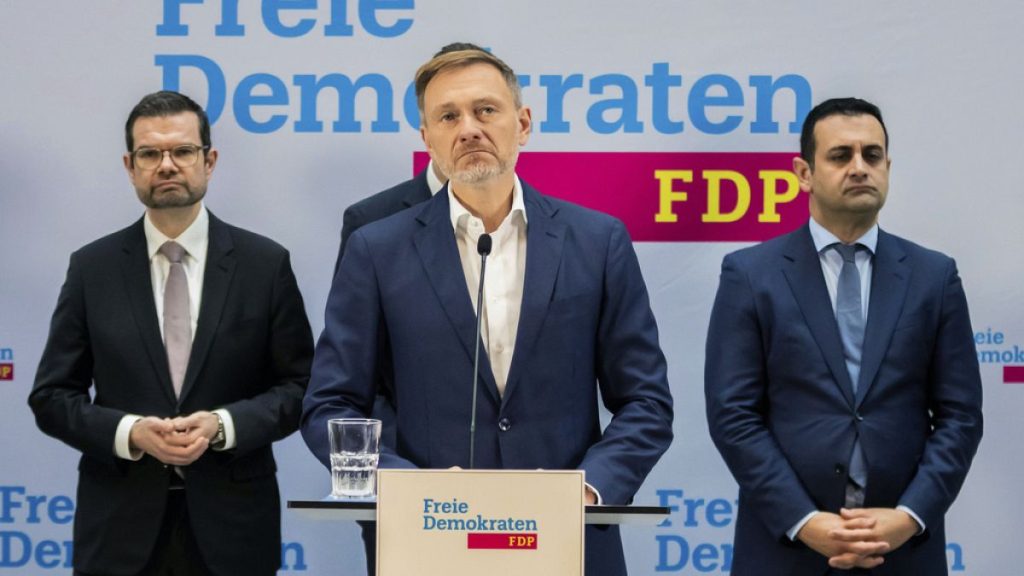FDP Secretary General Bijan Djir-Sarai has resigned following the publication of a controversial internal document known as the “D-Day paper,” which suggested that the party was strategizing on how to undermine the three-party coalition they were part of. This resignation came amid mounting pressure on the party’s leadership after the eight-page document was disclosed, detailing plans to potentially exit the coalition with Chancellor Olaf Scholz’s Social Democratic Party (SDP) and the Greens. Djir-Sarai stated he had “unknowingly” provided inaccurate information regarding the document’s existence, which he had no prior knowledge of. His resignation was aimed at preserving his own credibility and that of the FDP amid rising scrutiny and public backlash.
The “D-Day paper” outlined the FDP leadership’s perspective on the deteriorating relations within the coalition and discussed timing for a potential exit. It became a contentious topic, especially because it implied that the FDP had been strategizing the collapse of the coalition rather than it occurring unexpectedly. Public reaction has been overwhelmingly critical of the FDP, with a significant portion of the German population blaming the party for the coalition’s downfall. A recent Infratest dimap survey indicated that around 40% of Germans hold the FDP responsible for this political crisis, juxtaposed with only 19% blaming the SDP.
In light of Djir-Sarai’s resignation, which followed calls for accountability from within the party, the Young Liberals, the party’s youth wing, expressed that the situation was damaging to the party’s reputation and leadership. Federal chairwoman Franziska Brandmann critiqued the document, branding it as inappropriate for a liberal party. Additionally, senior FDP figures echoed similar sentiments, indicating that while having exit strategies could be valid, the document’s language was harmful and counterproductive to the party’s image.
Carsten Reymann, the party chairman, also stepped down shortly after Djir-Sarai, asserting that he sought to facilitate a reorganization of the party as it approached a critical federal election. He disclosed that he authored the “D-Day paper,” characterizing it as an internal document drafted for potential scenarios in which the party might withdraw from the coalition. Reymann outlined that the party had been facing significant internal and external pressures that necessitated a clear strategy moving forward, even as he insisted that the document had not gone through proper political consultation.
The revelations surrounding the FDP and the internal document painted a troubling picture of the party’s continuity within the coalition. Insiders indicated that the conflicts between coalition parties had reached a point where they believed new elections might be necessary to resolve the deadlock. This sentiment was echoed by ousted Finance Minister Christian Lindner, who defended the intent behind drafting the contingency paper and insisted it pointed to professional preparation for uncertain political outcomes rather than a premeditated plan for disbandment.
With the coalition effectively collapsed following Lindner’s dismissal on November 6, new elections are scheduled for February 23. The FDP now finds itself in a challenging position, having suffered leadership changes and a potential crisis of confidence among voters. In the interim, the party’s priority will be to regroup and redefine its strategy as it seeks to navigate an important electoral contest that will ultimately determine its role and direction in Germany’s political landscape.














